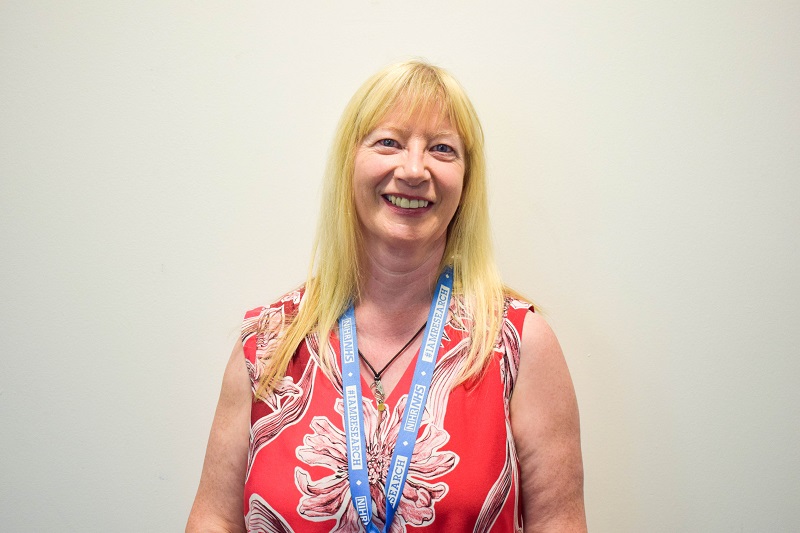
My name is Irene, I’m 60 years old from Newcastle upon Tyne and I’m a breast cancer survivor. I was diagnosed when I was age 45 and underwent successful treatment to remove the tumour in 2003.
Since then, I am very proud to have been involved in research as a healthy participant.
How did you first hear about Patient Research Ambassadors?
I discovered research quite by accident really. When I was diagnosed with breast cancer in 2003, I agreed to donate some of the tissue removed during my surgery to research. I wanted to do anything I could to contribute to research into this terrifying disease.
This was the start of my ‘research career’ and I soon became involved in a wide range of different studies and projects. I’ve been taking part in studies ever since. During my research studies I met some of the Patient and Public Involvement and Engagement (PPIE) team at the Central Research Network and decided to become a Patient Reseach Ambassador (PRA).
What made you decide to become a PRA?
My involvement in research has brought many benefits to me on a personal level. Taking part in an exercise study for example, meant that I had the chance to see what improvements were taking place in my own body.
By developing my own confidence to say “I don’t know” or ask what something means, I’ve improved my own knowledge and awareness of conditions that either myself or people close to me might suffer from and it’s changed the way I behave in a clinical situation – definitely for the better. I thought my experience could help others so I decided to become a PRA.
Why do you think NHS research is important?
Clinical research is vital to the NHS to help make improvements to patient care and outcomes. I am excited to be involved in research that makes a contribution to the advancement of medical and scientific knowledge, even in a small way. Research helps everyone understand more about growing old and what that means, finding more treatments and cures for diseases. Eventually researchers hope to make disease a thing of the past. It’s only with real people’s contributions that research can move forward.
What activities have you been involved with?
I take part in a really wide mix of research projects, including direct participation as a ‘study subject’ and involvement in focus groups and research panels. I also contribute to the engagement of other patients and members of the public and am a member of several PPIE groups in Newcastle upon Tyne Hospitals NHS Foundation Trust including Perspectives in Cancer Research (Patient) and Public Involvement in Musculoskeletal Services.
As a ‘healthy volunteer’, I have been involved in laboratory-based work such as activity monitoring, gait studies, exercise studies and assessment of brain activity for comparison with various patient groups. On other occasions my involvement is as simple as completing a questionnaire, or online puzzles. It’s so varied!
I’m also a member of a group called ‘Perspectives in Cancer Research’ at the Freeman Hospital which focuses on cancer care and contributes to other aspects of patient care, working closely with Cancer Research UK.
What would you say to others who are considering getting involved in research?
To anyone thinking about getting involved, I would say that it is a fantastic time to take part in research. It’s exciting and while it’s easy to think your individual contribution will be small, the findings could be shared with scientists and clinicians around the world to develop new and more effective treatments.
My advice would be to take any research commitments very seriously and stay dedicated throughout the project. For the integrity of the research it is important to follow through with the requirements of the study.
It’s much easier to get involved than you might think.
Tell us your story
Have you taken part in a research study? Do you want to share your story like the others on this page? Let us know by emailing bepartofresearch@nihr.ac.uk




